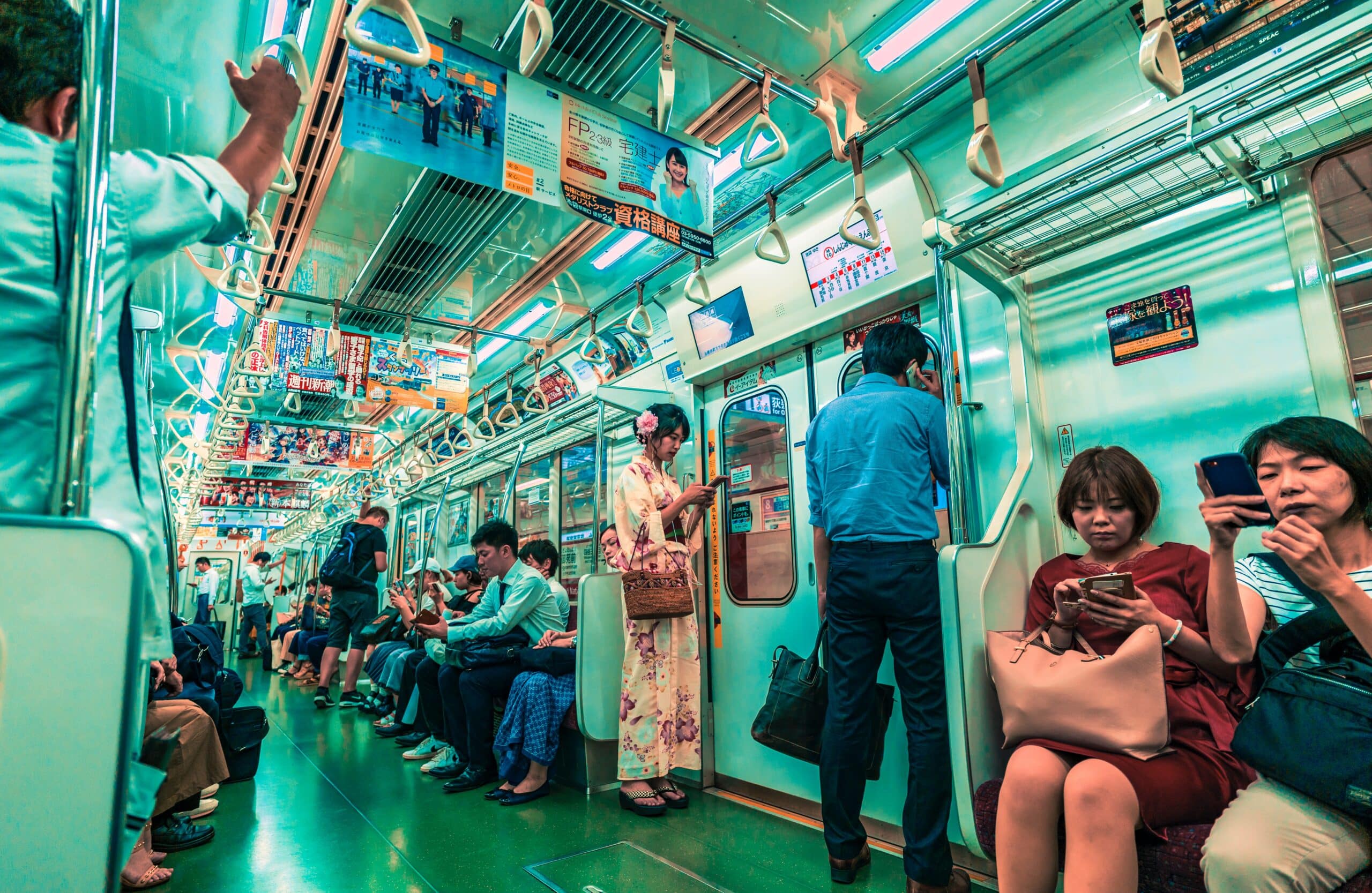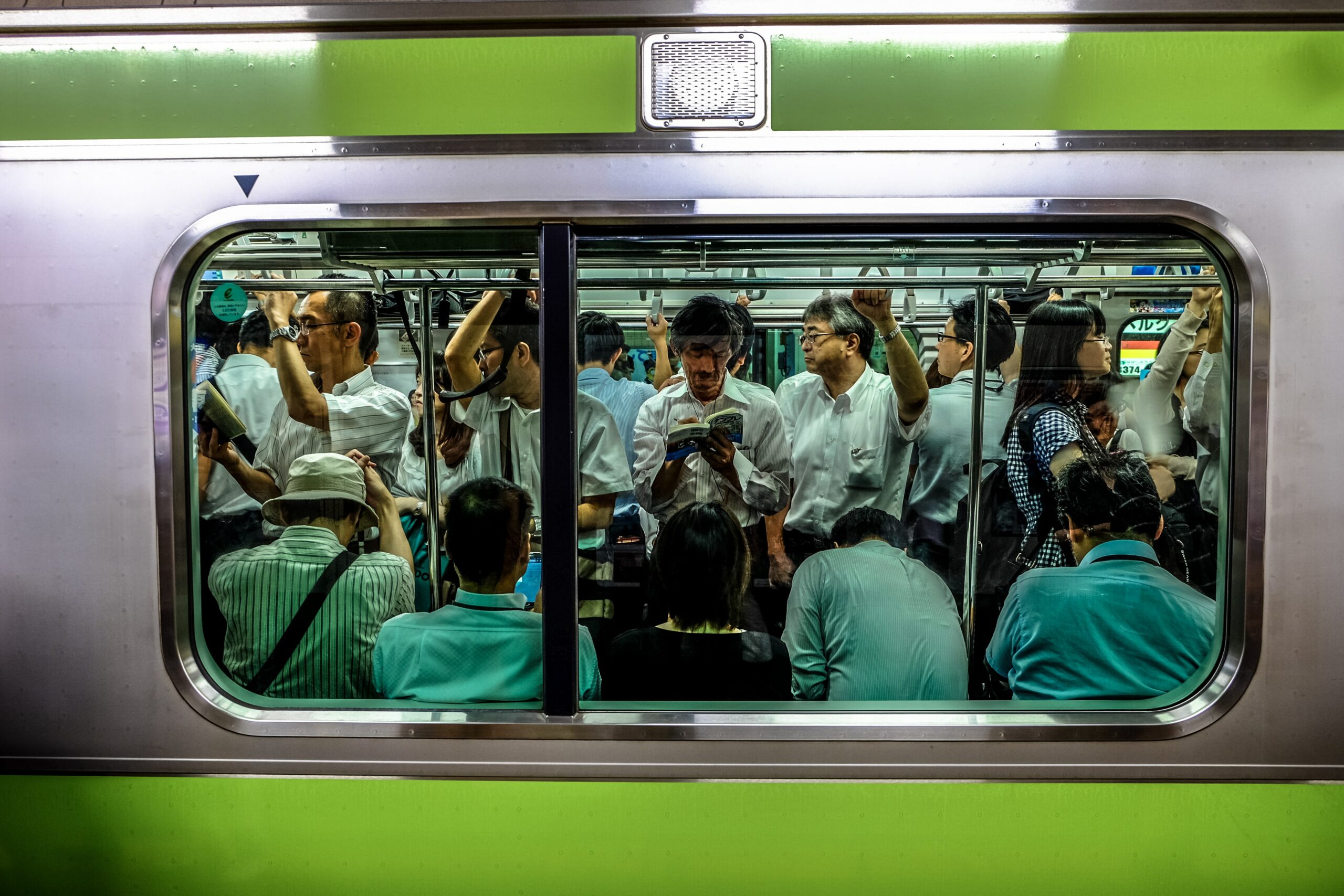Ah, Tokyo’s subway – a marvel of efficiency, punctuality, and order. Should you ever find yourself in the capital, the underground is a fantastic way to explore the city. It’s made up of multiple lines run by different companies, making it easy to reach all the top tourist spots. Here’s the rundown, for your information.

Getting on is a breeze
You can buy a ticket from the easy-to-use machines at most stations or grab a handy Suica or Pasmo card from a ticket machine or convenience store. These cards work on the subway, buses, and trains throughout the city. Even better, navigating the subway stations in Tokyo is simple, with clear signs in both Japanese and English. Trains run frequently and are known for being safe and reliable. It’s everything we could want as a tourist in a strange yet wonderful land, and more.
The transit honor system
Although most people in Japan follow train etiquette, it’s possible to unknowingly make locals feel uncomfortable. We know that’s not your intention. But it could happen! According to a recent survey by the Japan Private Railway Association, these are the top irritating behaviors by train passengers:
- Bag Placement: When it comes to train travel, placing bags in a way that is considerate to others is key. Most respondents expressed frustration with backpacks or shoulder bags that take up space, some felt bothered by bags on seats. Some even found bags on the floor of train cars to be an issue.
- Loud Talking: Whether it’s talking on the phone or with friends, talking loudly in trains can disrupt others and is considered inconsiderate.
- Seat Behavior: Taking up more room than needed by spreading legs apart, also known as manspreading, can be a real annoyance for fellow passengers.
- Rude Boarding and Disembarking: When the train doors open, not giving way to others is thoughtless and disrespectful.
- Loud Headphone Music: Playing music so loud that others can hear it through your headphones is generally discouraged in trains, as it can disturb those around you who are trying to relax or read.
- Phone Walking: Using your phone while walking in a train can be distracting and even dangerous, making it one of the most considered inconsiderate behaviors.
- Drinking on Trains: While drinking is a big part of Japanese culture, getting on a train while drunk can be a nuisance to others.
- Makeup on Trains: Applying makeup on a train can be messy and can make others feel uncomfortable watching you groom in public.
- Leaving Trash: Leaving trash lying around on a busy train can be a hazard, especially during peak hours when people are rushing to catch their next train.
- Eating in Crowded Trains: In a culture that values quietness on trains, eating food can be disruptive and unpleasant for others, both with the noise and the smell.
Arigato, and enjoy
It’s safe to say Japan has a lot of differing norms. They are hard to predict for a newbie in town. But thanks to this handy list, you’re prepared — for the train, at least!









